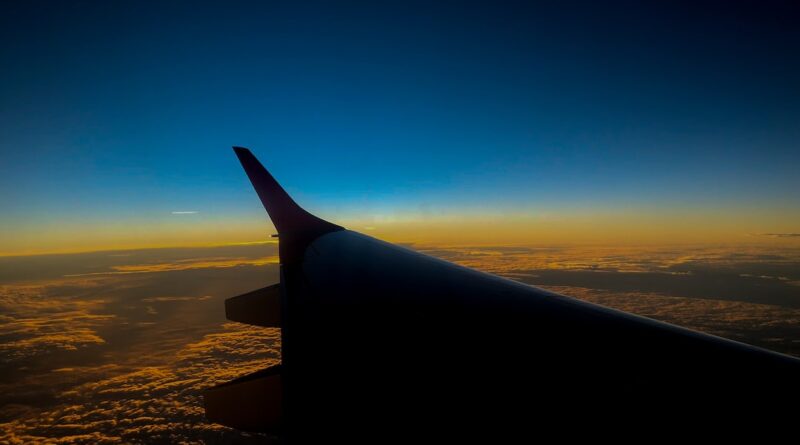What is the minimum delay for a flight to qualify for compensation?
When it comes to air travel, delays are an inevitable part of the experience. Whether it’s a mechanical issue, a late-arriving crew, or bad weather, flights can be delayed for any number of reasons. But what happens when a flight is delayed for an extended period of time? Are passengers entitled to any compensation? The answer is yes, and the minimum delay for a flight to qualify for compensation depends on the airline and the type of flight.
In the European Union, the minimum delay for a flight to qualify for compensation is three hours. This applies to all flights within the EU, as well as flights from the EU to other countries. Passengers who experience a delay of three hours or more are entitled to compensation of up to €600, depending on the length of the flight.
In the United States, the minimum delay for a flight to qualify for compensation is two hours. This applies to all domestic flights, as well as flights from the US to other countries. Passengers who experience a delay of two hours or more are entitled to compensation of up to $1,300, depending on the length of the flight.
Outside of the EU and US, the minimum delay for a flight to qualify for compensation varies from country to country. In Canada, for example, the minimum delay for a flight to qualify for compensation is four hours. In Australia, the minimum delay for a flight to qualify for compensation is three hours. In India, the minimum delay for a flight to qualify for compensation is two hours.
In addition to the minimum delay for a flight to qualify for compensation, passengers may also be entitled to compensation for additional costs incurred due to the delay. These costs may include hotel accommodations, meals, transportation, and other expenses. The amount of compensation varies from airline to airline, so it’s important to check with the airline for details.
When a flight is delayed, passengers should contact the airline to find out if they are entitled to compensation. The airline should provide information about the minimum delay for a flight to qualify for compensation, as well as any additional costs that may be covered. It’s important to keep all receipts and documentation related to the delay, as this may be necessary to receive compensation.
Delays can be frustrating, but understanding the minimum delay for a flight to qualify for compensation can help passengers receive the compensation they are entitled to. By knowing the minimum delay for a flight to qualify for compensation, passengers can be prepared for the possibility of a delay and can take the necessary steps to ensure they receive the compensation they deserve.
The minimum delay for a flight to qualify for compensation is an important consideration for any traveler. Understanding the regulations and requirements for compensation can help you make sure you get the compensation you deserve.
When a flight is delayed, the airline is responsible for providing compensation to the passengers. The amount of compensation depends on the length of the delay and the airline’s policy. In general, the longer the delay, the more compensation is due.
The minimum delay for a flight to qualify for compensation is two hours for domestic flights and three hours for international flights. This is based on the EU Regulation 261/2004, which is a law that applies to all flights that depart from an EU airport or arrive at an EU airport.
The regulation states that if a flight is delayed by more than two hours for domestic flights or three hours for international flights, the airline must provide compensation to the passengers. The amount of compensation depends on the length of the delay and the distance of the flight.
For domestic flights, the airline must provide compensation of €250 for delays of two to four hours, €400 for delays of four to eight hours, and €600 for delays of more than eight hours. For international flights, the airline must provide compensation of €250 for delays of three to four hours, €400 for delays of four to eight hours, and €600 for delays of more than eight hours.
The airline is also responsible for providing passengers with meals, refreshments, and hotel accommodation if the delay is more than five hours. The airline must also provide passengers with access to phone calls and emails, as well as reimburse them for any additional expenses they incur due to the delay.
In order to receive compensation, passengers must submit a claim to the airline. The claim must include details of the flight, the delay, and any additional expenses incurred due to the delay. The airline must respond to the claim within seven days.
If the airline does not respond to the claim or refuses to provide compensation, passengers can file a complaint with the national enforcement body in the country where the flight departed from. The enforcement body will investigate the complaint and may order the airline to provide compensation.
In some cases, passengers may be able to file a claim directly with the airline. This is usually done through the airline’s website or by contacting the airline’s customer service department.
When filing a claim, passengers should make sure to include all relevant information, such as the flight number, the date and time of the flight, the length of the delay, and any additional expenses incurred due to the delay.
Understanding the minimum delay for a flight to qualify for compensation is important for any traveler. Knowing the regulations and requirements for compensation can help you make sure you get the compensation you deserve.




